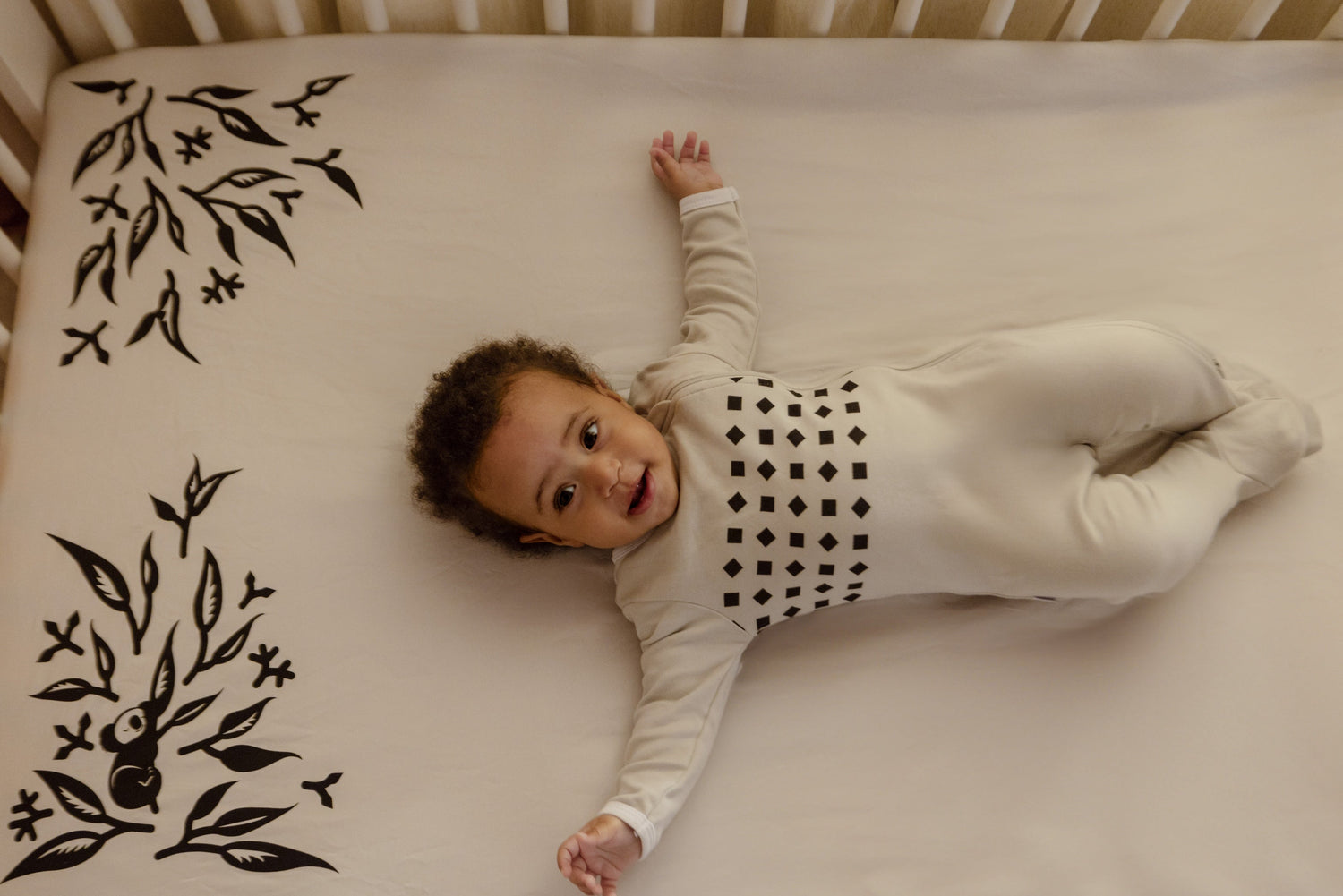New parents worry about whether their baby’s breathing is normal—is it too fast? Too slow? Too noisy? Questions like, “How many breaths per minute is normal for an infant?” are common concerns, especially for those navigating newborn breathing patterns for the first time.
Understanding what’s typical can help ease anxieties and flag potential breathing problems early. Read on for the answer as we discuss all things related to your child’s respiratory rate.
What is a normal breathing rate for babies?
There is a range of breaths per minute that is normal for newborns. Because breathing rate can fluctuate, when counting an infant’s respiratory rate it is best assessed by counting for a full 60 seconds. The respiratory rate for newborns and infants ranges most typically from 35 to 60 breaths per minute. However, a prolonged respiratory rate of 60 breaths per minute may indicate a respiratory issue that should be addressed with your pediatrician. Respiratory rate varies based on your infant's activity, and depends on what they’re doing; are they playing? sleeping? Crying? The most accurate respiratory rate is obtained while your baby is resting or asleep.
Signs of healthy breathing
Checking your baby’s breathing rate frequently is common for parents, especially when they’re snoozing in their bassinet. Understanding what normal newborn breathing looks like can help ease your worries. There are ways you can look to reassure yourself that all is well.
The following are good indicators that your infant’s breathing is normal:
- Breathing appears smooth with gentle up and down chest movements.
- Babies can sound snorty and congested, like barnyard animals at times, but if they appear comfortable despite the noises, their breathing is likely okay.
- They appear relaxed and comfortable, without any signs of respiratory distress like flaring nostrils, grunting, or pulling in of chest muscles while breathing.
If you observe unusual breathing patterns or signs of discomfort, it’s important to consult your pediatrician to rule out any concerns about respiratory distress or irregularities in their breathing rate.
Why do breathing rates change?
Of course, your little one won’t have the same breathing rate 24/7. Changes in their activity, age, and overall health can influence how they breathe.
These factors have an impact on baby breaths per minute:
- Sleeping. When a baby is sleeping, their breathing rates are slower than when they’re awake. Newborns do however experience periodic breathing often while asleep: where they may be breathing faster (almost like panting) followed by a pause in breathing of up to 10 to 15 seconds. This is normal and is typically outgrown within a few months.
- Calm and awake. Calm and alert babies usually maintain a regular and steady breathing pattern.
Crying. When babies cry, their breathing pattern may vary with some deeper breaths followed by a temporary increase in their breathing rate.
Stay on top of your baby's breathing motion with Nanit
Monitoring your little one’s breathing rates can feel like a full-time job, especially with everything else you have to do as a parent. However, the right baby monitor can provide some comfort allowing you to rest easier.
Enter the Nanit Pro Baby Monitor, a sensor-free breathing motion monitoring device that works like a baby monitor, but with the benefit of Breathing Wear. When paired with our Breathing Wear, the camera continuously monitors your baby’s breathing motion, providing notifications through the app while also keeping you updated on their sleep patterns. This proactive breathing motion monitoring can alert you to potential issues, so you can act immediately if needed.
You’ll also be able to remotely view your baby from anywhere, whether you’re in the room next door or enjoying a well-deserved night out. Pro Camera sends you sound and motion notifications, tracks room temperature and humidity, and gives you access to sleep data that analyzes your baby’s sleep patterns.
No matter where you’re at in your parenting journey, give yourself the gift of peace of mind with Nanit.
Key takeaways
- Understand normal breathing rates. A newborn breathes at a rate of 35-60 breaths per minute.
- Know the vital signs of normal breathing. Signs of normal breathing in babies include a steady breathing rhythm and a relaxed demeanor.
- Various activities can change your baby’s breathing rate. Sleeping, resting, feeding, and crying all affect how quickly a baby breathes.
Sources:
NIH. Normal ranges of heart rate and respiratory rate in children from birth to 18 years: a systematic review of observational studies? https://www.ncbi.nlm.nih.gov/pmc/articles/PMC3789232/
Alberta. Learning About Periodic Breathing in Infants. https://myhealth.alberta.ca/Health/aftercareinformation/pages/conditions.aspx?hwid=abr3128&
Medical News Today. What to know about newborn respiratory rates. https://www.medicalnewstoday.com/articles/327164#when-to-see-a-doctor









































